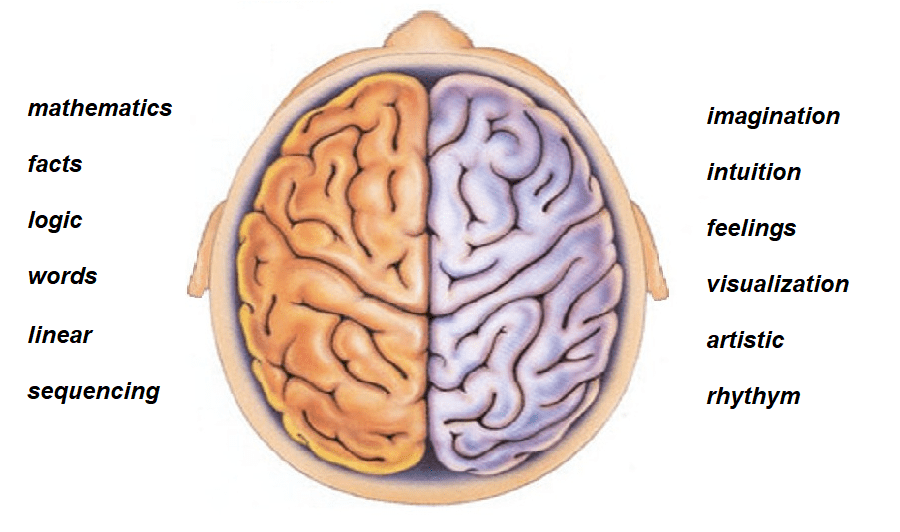Brain-based learning, also known as neuroeducation, is an approach to education that draws insights from cognitive neuroscience to better understand how the brain learns and retains information.
By aligning teaching methods with the brain’s natural processes, educators aim to enhance the efficiency and effectiveness of learning. Here are the key principles and implications of brain-based learning:
Engaging the Senses: The brain processes information more effectively when multiple senses are engaged. Incorporating visual aids, hands-on activities, also auditory elements in teaching can enhance comprehension and memory retention.

Active Learning: Active participation stimulates brain activity. Encouraging students to solve problems, ask questions, also engage in discussions promotes deeper understanding and memory consolidation.
Emotional Connection: Emotions play a significant role in learning. Positive emotions, such as curiosity and interest, enhance memory and cognitive processing. A safe and supportive classroom environment is essential for fostering emotional connections to the subject matter.
Respect for Individual Differences: Every brain is unique, and learners have different preferences and strengths. Brain-based learning recognizes the importance of accommodating diverse learning styles and abilities.
Stress Reduction: High stress levels can impede learning. Techniques like mindfulness and stress reduction exercises can help students manage anxiety also optimize their cognitive functions.
Chunking and Spacing: Breaking information into smaller, digestible chunks also spacing learning sessions over time can improve retention. This aligns with the brain’s limited capacity for processing information.
Feedback and Reflection: Frequent feedback and opportunities for self-reflection help learners monitor their understanding and adjust their strategies. This promotes metacognition, which is crucial for effective learning.
The Role of Sleep: Quality sleep is vital for memory consolidation. Brain-based learning acknowledges the importance of adequate rest for optimal cognitive function.
Brain Plasticity: The brain’s ability to rewire itself allows for continuous learning and adaptation. Educators can leverage this concept to encourage lifelong learning.
Interdisciplinary Learning: Encouraging connections between different subjects also disciplines can stimulate creative thinking and enhance memory retrieval.
Brain-based learning is not a one-size-fits-all approach but rather a set of guiding principles that can inform instructional strategies.
By incorporating these principles into teaching practices, educators can create a more brain-friendly learning environment that supports students in maximizing their cognitive potential, promoting deep understanding, and fostering a lifelong love of learning.
As our understanding of neuroscience advances, brain-based learning will continue to evolve and shape the future of education. 온라인카지노
What i do not understood is in truth how you are not actually a lot more smartlyliked than you may be now You are very intelligent You realize therefore significantly in the case of this topic produced me individually imagine it from numerous numerous angles Its like men and women dont seem to be fascinated until it is one thing to do with Woman gaga Your own stuffs nice All the time care for it up
Normally I do not read article on blogs however I would like to say that this writeup very forced me to try and do so Your writing style has been amazed me Thanks quite great post
꽁타가 매일 꽁머니를 쏩니다. 꽁타가 보증한 인증업체에서 구글에서 검색 꽁타
꽁머니 홍보방,꽁 게시판,꽁머니공유,꽁5천,꽁1만, 환전 가능한 꽁머니 토토사이트를 공유하는 꽁타 커뮤니티 입니다.
men thats great very good..
I have read some excellent stuff here Definitely value bookmarking for revisiting I wonder how much effort you put to make the sort of excellent informative website
💰△ggongta.com△꽁타💰꽁타, 꽁머니, 꽁머니사이트, 꽁, 가입머니, 꽁머니공유방, 꽁머니홍보방, 꽁머니게시판, 꽁1만, 꽁3만, 꽁2만, 꽁5천, 꽁머니공유, 무료환전, 꽁타 – 꽁머니 홍보방, 환전가능한 꽁머니 사이트 추천
Its like you read my mind You appear to know so much about this like you wrote the book in it or something I think that you can do with a few pics to drive the message home a little bit but instead of that this is excellent blog A fantastic read Ill certainly be back